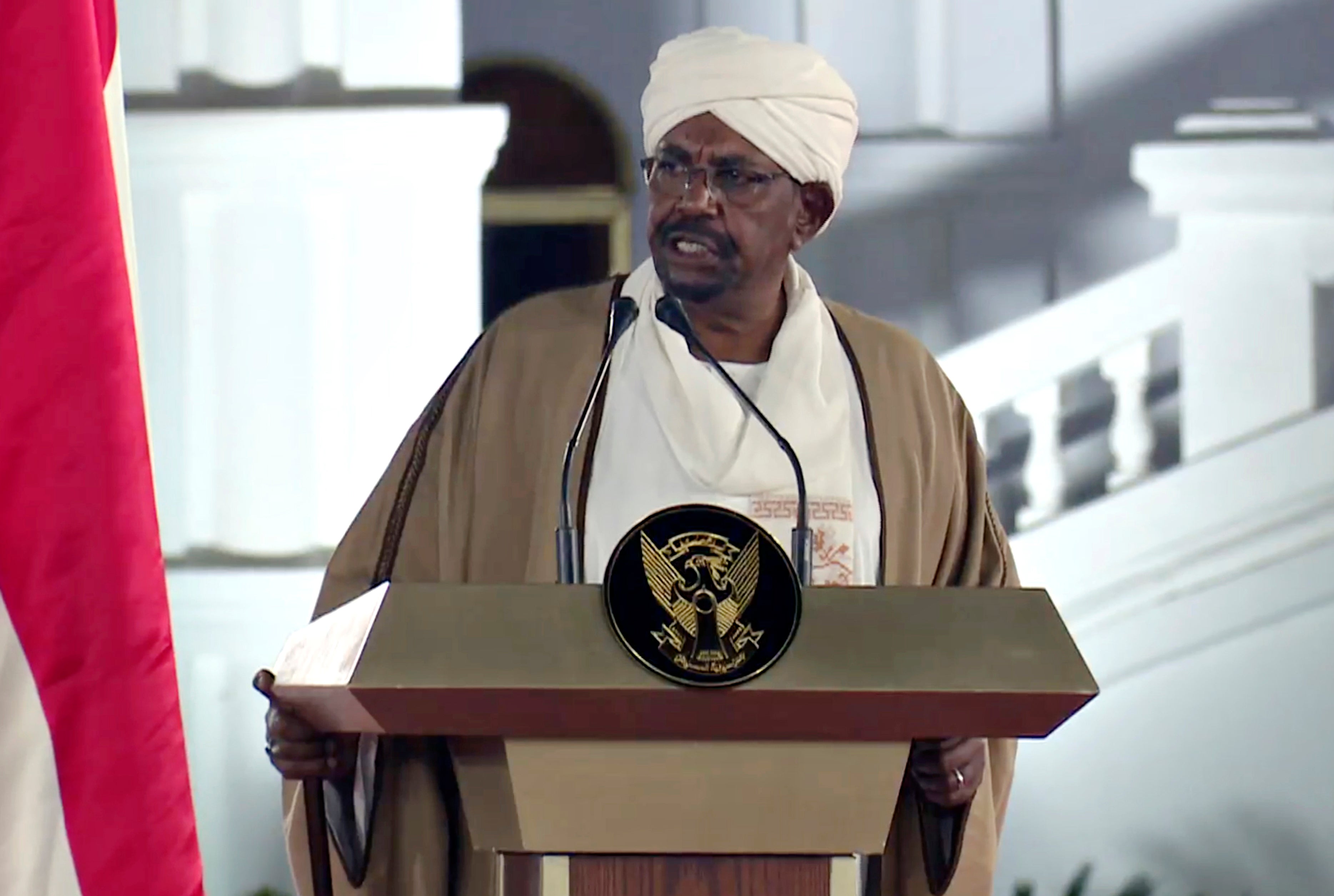Jailed strongman's whereabouts unknown amid Sudan chaos
An attack on the prison holding deposed Sudanese strongman Omar al-Bashir has raised questions about his whereabouts as the country's two top generals battle for power

An attack on the prison holding deposed Sudanese strongman Omar al-Bashir has raised questions about his whereabouts, with one of the warring sides saying he is being held in a secure location and the other alleging he has been released.
Al-Bashir, who ruled Sudan for three decades despite wars and sanctions, was overthrown during a popular uprising in 2019. He is wanted by the International Criminal Court for genocide and other crimes committed during the conflict in Sudan's western Darfur region in the 2000s.
He and other former top officials accused of atrocities have been held in Kober prison in Khartoum for the last four years, as authorities have declined ICC requests that they be handed over.
The Sudanese military and the paramilitary Rapid Support Forces, which together had removed al-Bashir from power during mass protests, are now battling one another across the capital. The fighting reached the prison over the weekend, with conflicting reports about what transpired.
Military officials told The Associated Press that al-Bashir, as well as Abdel-Rahim Muhammad Hussein and Ahmed Haroun — who held senior security positions during the Darfur crisis — had been moved to a military-run medical facility in Khartoum under tight security for their own safety. The officials spoke on condition of anonymity because they were not authorized to discuss the matter with media.
The army later accused the RSF of donning military uniforms and attacking the prison, saying they released inmates and looted the facility. The RSF, led by Gen. Mohammed Hamdan Dagalo, denied the allegations and claimed that the military “forcibly evacuated” the facility as part of a plan to restore al-Bashir to power.
Burhan and other senior officers served under al-Bashir, and activists say the Islamist “deep state” that underpinned his long rule is still intact. Dagalo also once served as a loyal enforcer to al-Bashir, helping to suppress rebellions in Darfur and other provinces.
Both the military and the RSF have sought to portray themselves as allies of the country's pro-democracy movement who are trying to restore its transition to civilian rule. But both have a long history of brutalizing activists and protesters, and they joined forces to remove civilian leaders from power in a coup less than two years ago.
Kober prison held a number of activists detained after the coup, some of whom were charged in the death of a senior police officer during a protest.
One of them, Mosab Sharif, posted a video online saying that the entire prison had been emptied after a military strike that killed some of those inside. He said armed men burst through the doors and ordered everyone out.
Another activist who walked free, Ahmed al-Fatih, said he was willing to surrender at a police station but could not find any that were functioning amid the unrest, according to a statement released by his defense lawyers. Both activists said their lives were in danger at the prison as food and water ran low.
Videos circulating online appear to show a long line of prisoners leaving the facility with bags of belongings slung over their shoulders.
The ICC indicted Al-Bashir, Hussein and Haroun on charges of genocide, crimes against humanity and war crimes committed in Darfur.
The Darfur conflict erupted when rebels from an ethnic African community launched an insurgency in 2003, complaining of oppression by the Arab-dominated government in Khartoum. Al-Bashir launched a scorched-earth campaign that included air raids and attacks by notorious Janjaweed militias — tribal fighters who stormed into villages on horses and camels.
The campaign was marked by mass killings, rape, torture and persecution. Some 300,000 people were killed and 2.7 million were driven from their homes.
Dagalo has not been implicated in the atrocities carried out in Darfur at the height of the conflict in 2003 and 2004, but his forces grew out of the Janjaweed and are accused using similar tactics.
Subscribe to Independent Premium to bookmark this article
Want to bookmark your favourite articles and stories to read or reference later? Start your Independent Premium subscription today.
